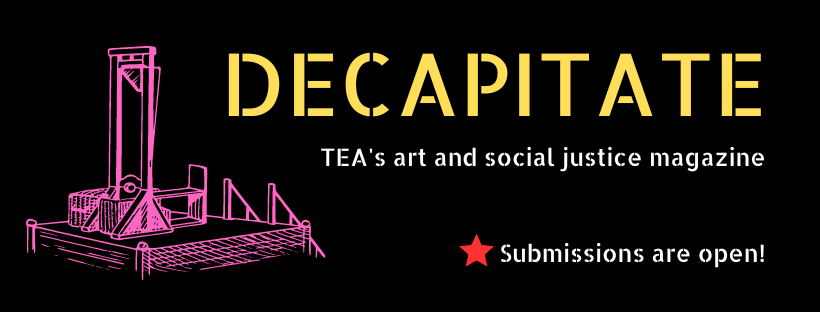The earliest and fondest memory I have from eKasi started in Soweto, Mofolo South – Keswa Street, number 96 opposite Gog’ Pat and diagonal to Ka’Mamsie, a tavern with the best Jukebox. That’s where I discovered my love for the 70s, 80s, and 90s music. Kids weren’t allowed in that space but I somehow knew the drunkards were charged R2 for their music requests. I’d sit on the bulky cement surrounding the grass next to my gate and listen to the music. It was loud.
We lived in a corner house yard with a black and white see-through gate made from metal. The paint was always faint. My mom and I lived in a tiny backroom she rented where the kitchen, dining room, bedroom, toilet (bucket), and later bought a washing machine were all squashed in one room, it was fairly neat, clean, and well-arranged. My mom was that person, cleanliness was non-negotiable. We survived, we made it our home, and some of my nostalgic moments were formed there.
Mom and I in our one room.
Growing up, I started playing emva’kwama room—loosely translated, behind the backrooms of the main house in our yard. I used to come back from school, go straight to the backrooms, and start teaching the dustbin, containers, and drums with a cane or a rod I found on top of the toilet roof. I’d imitate my teachers Mrs. Thomas or Mrs. Van der Westhuizen and beat these “kids.” I’d steal chalk from school for my lessons back at home. I used to write and draw on a rusty door and the chalk would blow and rest on my eyelids and hair. I wouldn’t care, I was dedicated to teaching! Thinking about it now, it was a cool way for me to revise what was taught in class and I’d do well. To this day my stepdad calls me “Ma’am.” I didn’t like playing in the streets then. In my mind, it wasn’t safe.
As time went by, I started getting taller and growing up. I had friends in my street, boys and girls. In the Black community when you start growing up responsibilities start building up as well, and my responsibilities from my mom included washing the dishes, cleaning the only fifteen white tiles that were visible in our room, making sure the mini bar stoep (porch) was polished and beaming red, and taking out isiShebo (meat) from the freezer. We all have a story about forgetting to take out the meat, and you knew what that meant right?
Being in the streets always felt nice. Jokes were flying and for some reason, we always had money for ama ice (ice lollies). We would play iBathi ne scotch (hopscotch). The first time I was exposed to a skateboard was eKasi but we didn’t use it for actual skating. You’d sit on it, and we’d push you and let you slide on your own. To our advantage, our street was downsloped. There was a tiny bump on the road, and it felt like you were driving an actual car speeding towards a hump. The thrill! We would start racing from the top corner house located at the busiest curve, “e-number 84,” popularly known as “enkomeni,” another tavern with a bit of class compared to KaMamsie. They sold the best ribs in Mofolo. Ask anyone about it, they’ll tell you. On Sundays my stepdad would go there and gather with his friends for iStokvel, but only for men. Being in the street meant being exposed to the lingo, being wary of what happens in that house, who’s been to prison, who has twenty kids, why we wouldn’t get our tennis balls if they fell over a certain house and so forth. I was exposed to older boys saying, “Haa, wena ngizoz’khulisela wena, umuhle saan” (I’ll groom you, you’re beautiful).
I wouldn’t say I was different from my peers, but I suppose I was “different.” Everyone has a nickname in eKasi. There’s no one who lives in the hood and doesn’t earn a nickname. Mine was “mlungu” because I’m light-skinned. In my 10, 11, and 12-year-old mind I honestly thought they saw me as a white person and my fair skin backed it up. We all know what the indoctrination of a light skin brings within a community of brown skinned people. You’re treated a bit better when your skin is lighter. All the boys like you and you get special privileges like throwing the ball first when we play iBathi because “umuhle” (you’re beautiful).
All that nice princess treatment happens until you don’t get first preference in the real world. All of a sudden, you’re reminded, “even if you’re light-skinned, you’re still a nigga.” That’s a joke and I’m digressing. Back to the story.
Growing up eKasi gave me the confidence to talk to the roughest people, people you wouldn’t ordinarily talk to. People from eKasi always have this confidence and assurance that you can’t get mugged in your hood and I agree.
I’m quite familiar, accustomed, and comfortable walking around Eldorado Park, even though it’s known to be one of the biggest drug hubs and hijacking spots after the Cape Flats. I spent thirteen years of my life in Eldorado Park during my primary and high school years. Instead of taking the taxi with my colored friends after school, we would rather walk in groups and scatter as we go around their Kasi and take different paths each day. You can situate me anywhere in Eldo’s, I’ll always find my way back home.
I’ve lived eMdeni as well, a place well known for danger. Mdeni will always have a special place in my heart. I’ll share that story someday.
Living eKasi is cool because of the culture and lived experience. You can’t relate it to any other. The collectivism structure is much stronger than individualism. The notable and rich spaza shops our neighbors owned were good things to see while growing up. KaZwane, KaNomsa, eCrossroad, Ka Gog’ Skoni, and KaBhut’ Sipho—those were the shops that raised us, and you always felt at home and knowing that your own people owned shops and butcheries felt empowering. There is richness eKasi, there’s flavor. Thandiswa Mazwai expressed with confidence and reminiscence when she said, “The ghetto is our first love, and our dreams are drenched in gold…”
…To a certain extent. iKasi, however has its own downfalls. Lines are easily blurred and boundaries are often crossed. When you want better for yourself, you’ll hear phrases like “wena uzyenza ngcono” (you think you’re better). It almost feels like we should all be stuck at the same level; compressed, so to say. It’s quite hard excelling eKasi on your own because that attracts bad company around you. iKasi is not as progressive as we would like for it to be. I can’t blame or crucify anyone who lives there with that kind of mentality or spirit because we were placed in concentration camps, and we found a way to survive with no trees, literally.
There is no space to breathe. Your yard has limits, we are all packed on top of each other, and any open space is turned into a dumping site for the whole community—next to your house, as if the municipality doesn’t provide dustbins. People piss on your wall or gate, leaving empty bottles of beer on your pavement. Noise pollution, too, since you live next to a tavern. Helicopters fly over your homes day and night because a car was stolen, and the entire community knows who it was but won’t say. Crime is rife. You’d make the mistake of moving away for a second from your new takkies on the toilet roof or wall, and they’ll be gone by the time you return, because we live amongst drug addicts.
What this kind of environment evokes and breeds is hypervigilance.
I’m an advocate of making iKasi a better place, holistically, and everyone should be hands-on. Future astrophysicists, artists, doctors, filmmakers, writers and poets are born and bred there. I grew up wanting to be a doctor, but no role model eKasi visualized that for me. All these beautiful elements and stories exist eKasi, they are merely blanketed by non-exposure. Professionals who’ve made it from eKasi need to come back and pay back their dues. I know I’ll be doing that. Teaching simple skills could go a long way for kids situated eKasi. Ignition paves the way for many. Values and morals too. I’m also an advocate of getting out of iKasi if you can and experiencing life on a different spectrum. They say the same about traveling in general. It always saddens me that there are people who were born, bred, and die eKasi who’ve never been exposed to anything outside of Soweto or any kind of Kasi. iKasi is a cool place, it just needs corroboration and collaboration.
iKasi can be a place of positivity and growth. Many undiscovered gems exist there. We can’t get rid of it, so we might as well uplift and build it.
For every good, there is the bad.
About Lerato Ofentse Makwela: I am a Writer & Philosopher, a Politics & Economics scholar who is passionate about the world being a much better place than what it is now. I am a lover of words and how beautiful they are when formed together. I believe in art & socialism.
Read more of Lerato’s writing on her blog.


